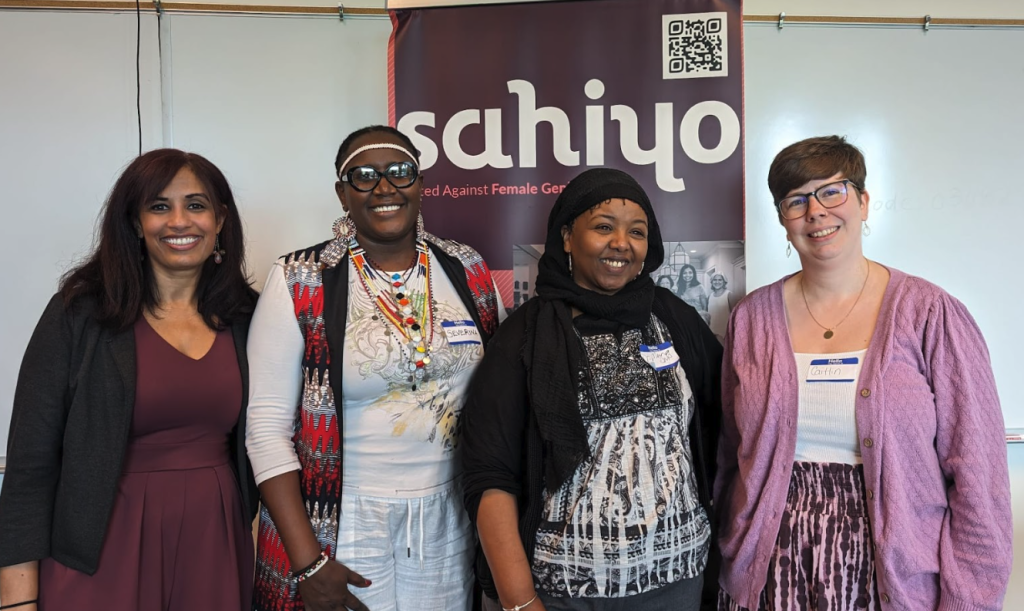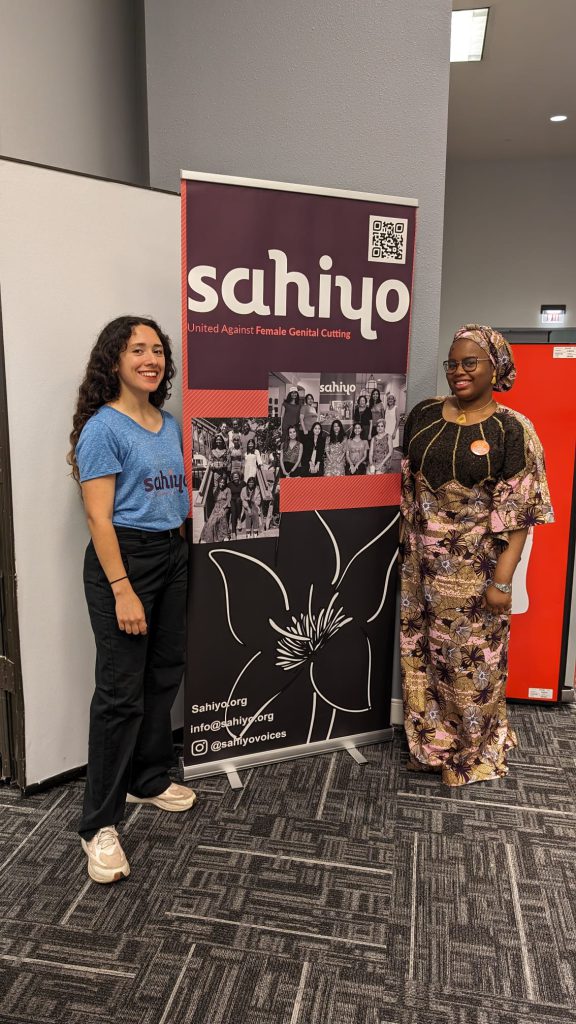Voices from Washington and Beyond: an In-Person Voices to End FGM/C Screening in Kent, WA

On June 13th, we had the privilege of hosting an in-person screening of the Voices to End FGM/C digital storytelling project in Kent, Washington, alongside project partners the US End FGM/C Network, Mother Africa, and the Washington Department of Health. This event provided a platform for courageous Washington-based individuals to share their personal narratives, shedding light on the practice of FGM/C and its profound impact on their lives. The screening featured powerful videos from participants who bravely addressed the physical, emotional, and social consequences of FGM/C. These stories highlighted the diverse and enduring impacts of the practice, reflecting a wide range of cultural and community contexts. Some storytellers shared their experiences of advocacy efforts to end FGM/C, while others explored how healthcare providers can best support survivors or discussed the effects of FGM/C on their family relationships. The event also emphasized the significance of Washington State’s recent legislative progress, particularly the passage of State Senate Bill 5453 in April 2023, aimed at addressing FGM/C within the state. This milestone underscores the importance of multi-sectorial, holistic approaches involving healthcare, government, nonprofit, and community-based organizations, alongside community members directly impacted by FGM/C. A special feature of the event was the panel discussion, where two of the storytellers, Muna and Severina, answered questions about their experiences and insights. The discussion covered topics such as the healing process, the need for support and resources, effective strategies for spreading awareness, challenges faced by survivors in seeking medical care, and ways to engage communities, including men and boys, in the conversation to end FGM/C. The screening in Kent fostered a sense of community and solidarity, highlighting the importance of creating safe spaces for open dialogue and mutual support. Many participants expressed gratitude for having a survivor-centered space where individuals could share and reflect on their experiences. We are deeply grateful to all the storytellers for their courage and the attendees for actively participating in learning more about FGM/C. Related: Sahiyo U.S. Engages Community Stakeholders in Seattle, Washington to Advance Senate Bill 5453 Initiatives Check out and bookmark Sahiyo’s Events Calendar
Sahiyo Presents FGC 101 Training at ICASA’s Annual Conference

On May 22nd, Sahiyo U.S. had the honor of presenting an FGC 101 training at the Illinois Coalition Against Sexual Assault (ICASA) conference in Springfield, Illinois. This training aimed to raise awareness and educate attendees about the critical issue of female genital cutting (FGC). Our session provided a comprehensive overview of FGC, including terminology, WHO’s classification of FGC, health impacts, and prevalence globally and in the United States, with specific statistics from Illinois. The presentation emphasized the need for stronger data, enhanced research, and community engagement to improve prevention, protection, and support services for women and girls impacted by FGC. Jumai Olumo, a dedicated Sahiyo volunteer and PhD candidate studying community psychology with a special focus on FGM/C, attended in person to support the event. Her academic and professional insights made the discussion both informative and personable. The diverse audience included rape crisis center staff from around the state, counselors, advocates, preventionists, and management/leadership, all of whom play a crucial role in supporting survivors of sexual violence. Participants were struck by the global and local prevalence of FGC, including within the United States. Many attendees were also surprised to learn that only 41 states currently have laws against FGC. One attendee remarked, “The presentation was incredibly impactful for someone like me who had little knowledge of FGC,” while another reflected, “great, informative presentation. Glad to know this organization exists.” The ICASA conference provided an excellent platform for Sahiyo to connect with other organizations and individuals committed to ending sexual violence and supporting survivors. We are grateful for the opportunity to contribute to this important conversation and continue raising awareness.
